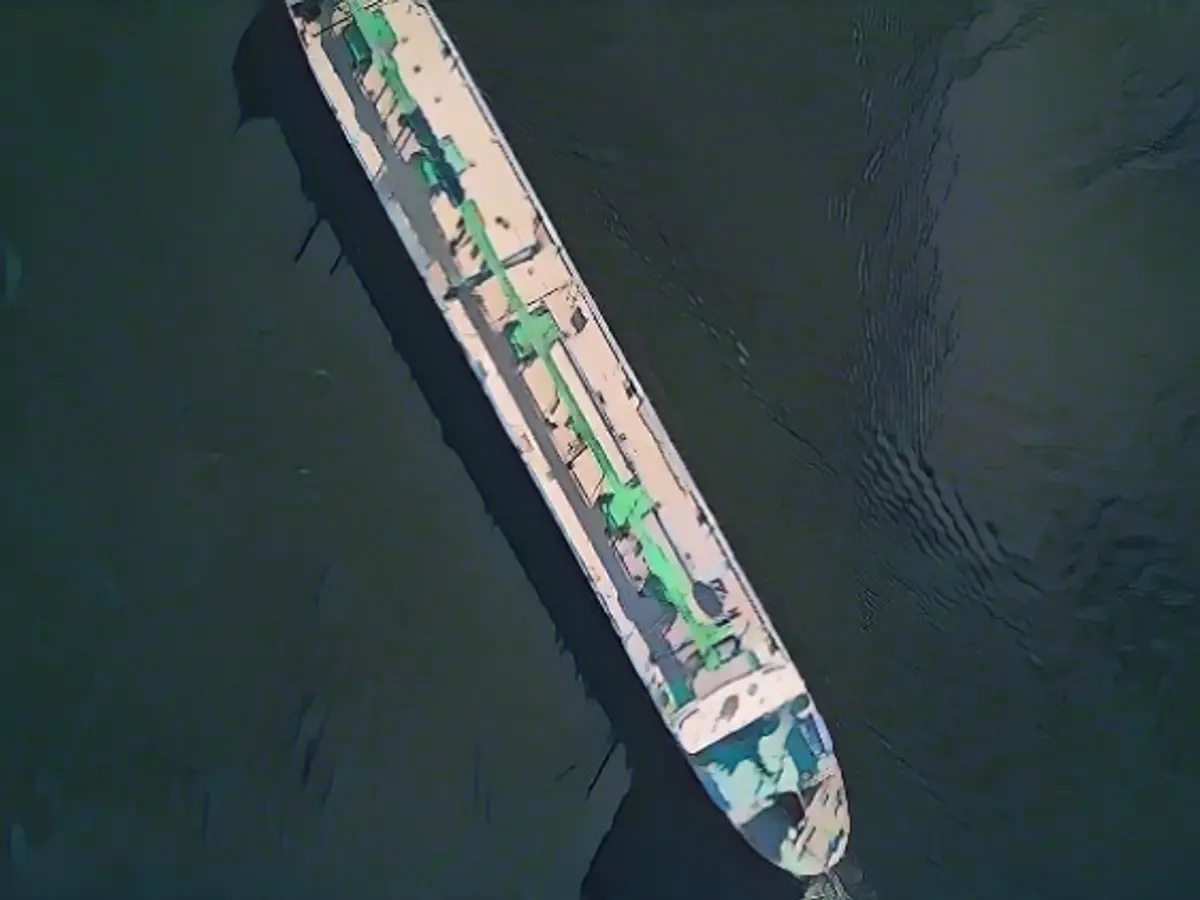The EU and Russia's "Ghost Fleet" Controversy
Recent discussions surrounding the EU's proposed tightening of sanctions against Russia have sparked concern over the impact on Russian oil exports. A controversial media report alleges that Denmark would be responsible for inspecting Russian oil tankers in the Baltic Sea, a claim the EU denies.
In anticipation of EU consultations on sanctions, a media report suggested that Denmark would inspect oil tankers carrying Russian crude oil in the Baltic Sea and potentially halt them if necessary. However, EU diplomats confirmed that the EU Commission's latest proposal makes no mention of tanker inspections or Denmark's involvement.
Russia's government denies any knowledge of these plans and stresses the importance of adhering to shipping regulations. Meanwhile, experts are raising questions about the proposed oil price cap, suggesting that its effectiveness might be compromised by a so-called "ghost fleet" of old, uninsured tankers honeycombing the global maritime space.
According to industry experts, this "ghost fleet" circumvents the oil price cap by registering and insuring Russian oil tankers in countries outside the Western alliance. The increased use of these vessels has also raised concerns about potential maritime safety hazards.
While the EU Commission's proposal would require shipping companies to disclose the costs associated with Russian oil transports, ensuring compliance with the price cap remains a challenge. Despite concerns, approximately one-third of Russia's oil exports shipped via the Baltic Sea passes through the Danish straits. Possible blockades of these exports could disturb global oil markets and potentially escalate tensions between Western allies and Russia.
Rethinking the price cap and "ghost fleet" enforcement
The emergence of a "ghost fleet" adds a layer of complexity to the EU's goal of enforcing the oil price cap. This situation highlights the necessity of reassessing the ways in which the price cap can be upheld, as well as the importance of addressing the maritime safety concerns raised by the deployment of these old vessels. A few steps to consider include:
- Enhancing International Cooperation: Collaborating with countries outside the Western alliance to implement a unified international approach to monitoring and enforcing the oil price cap can help create a more cohesive and effective strategy.
- Improving the tanker inspection regime: Implementing more rigorous tanker inspections can help curb the use of outdated vessels, ensuring that only seaworthy tankers transport Russian oil.
- Investing in regulatory enforcement: Providing the necessary resources, such as personnel and equipment, to effectively enforce the oil price cap will help ensure compliance with the regime.
EU member states intend to discuss the twelfth package of sanctions against Russia on Friday, with the EU Commission proposing various measures to bolster the implementation of the oil price cap and address the challenges imposed by the "ghost fleet."
Sources: , , , ,
Insights
The EU's proposed tightening of sanctions against Russia and their plans to enforce the oil price cap has led to a mixed reaction from experts and stakeholders. Some have praised the initiative as a smart move to target Russia's oil exports, while others have criticized the approach, calling it an ineffective strategy and expressing concerns about unintended consequences.
The emergence of a "ghost fleet" of outdated, uninsured tankers transporting Russian oil is complicating the price cap enforcement efforts, as these vessels make it difficult to determine whether or not oil is being transported above the imposed price limit. Moreover, concerns about maritime safety and the potential inconvenience associated with inspecting these vessels have surfaced.
To address these challenges, a multifaceted approach is needed that includes improving the inspection regime, investing in enforcement mechanisms, and bolstering international cooperation. By taking these steps, the EU can minimize the impact of the "ghost fleet" on the price cap and ensure a more sustainable and effective strategy for curbing Russian oil exports.





